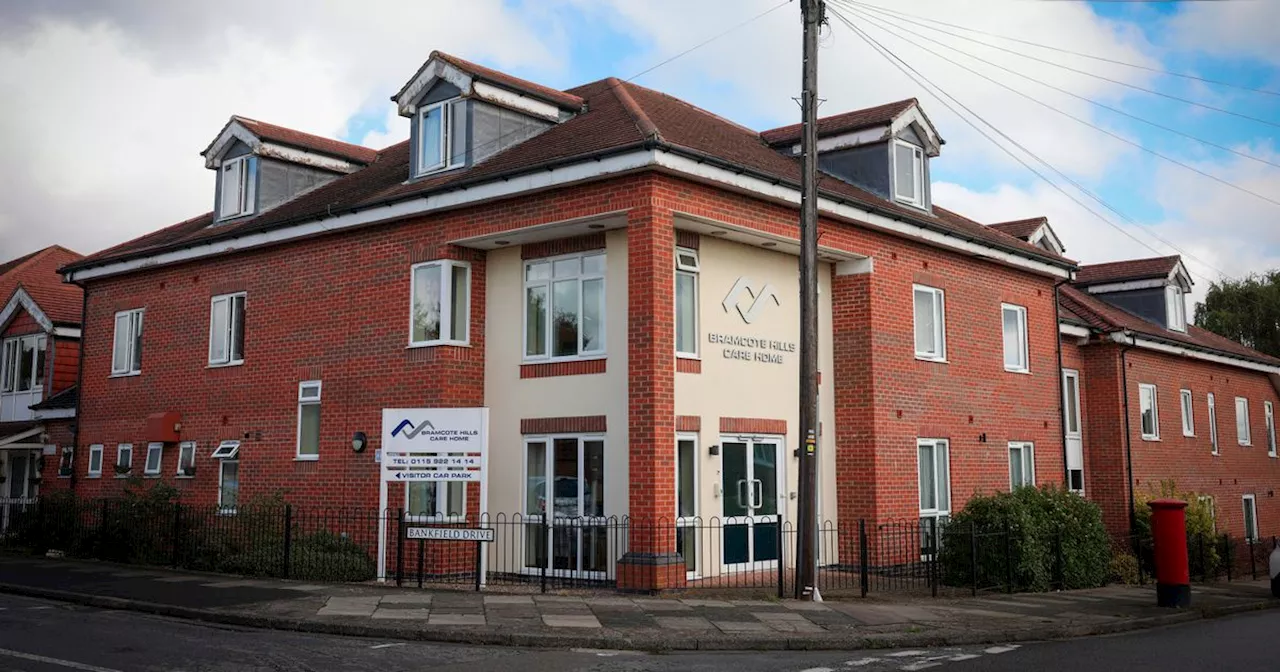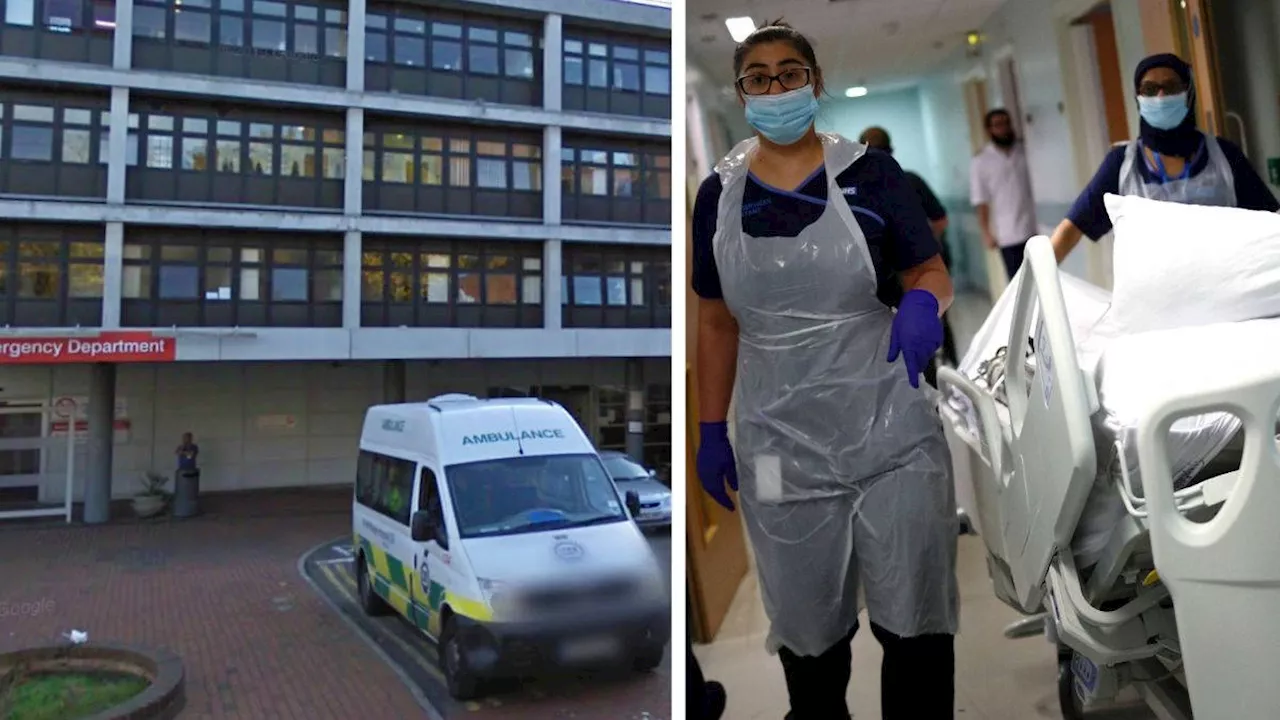A new report by the Royal College of Nursing (RCN) exposes the harrowing reality of strained working conditions in NHS emergency departments, highlighting concerns over patient safety and the mental well-being of nurses. The report, based on responses from over 5,000 nursing staff across the UK, reveals widespread instances of 'corridor care' where patients are treated in inappropriate settings due to overcrowding. Nottinghamshire nurses describe similar challenges, expressing fears over patient mortality and their own safety in increasingly pressured environments.
A Nottinghamshire member of the country’s biggest union for nurses says emergency department staff 'walk on a knife edge' every shift due to strained working conditions. The Royal College of Nursing (RCN) released its new report on Thursday (January 16), detailing the experiences of more than 5,000 NHS nursing staff across the UK. Members responded to questions on care in inappropriate settings, patient safety and the impact strained work environments had on themselves and their job.
Unsafe practices, lack of equipment and cases of patients dying in corridors were notable themes in the report. Just under 67 percent - nearly seven in 10 - of respondents spoke of having to deliver care in crowded and unsuitable spaces daily, such as corridors, converted cupboards and car parks. The report includes responses listed by region, including the East Midlands, without naming specific hospitals. The East Midlands section includes Derbyshire, Leicestershire and Lincolnshire and Nottinghamshire. Responses from East Midlands nursing staff recorded overcrowded emergency departments (ED), “at least 2 deaths” in one ED waiting room, corridor care, lack of patient privacy and dignity and nurses being unable to deliver appropriate care. While the Queen’s Medical Centre, part of Nottingham University Hospitals Trust (NUH), is not directly named in the report, it does serve as the East Midland’s major trauma centre and has recorded periods of ED strain and corridor care in recent months. Dr Mark Simmonds, deputy medical director at NUH, said in November that the trust may still see “significant amounts” of corridor care this winter with seasonal pressures putting strain on the hospitals. Marie Hannah, senior officer with RCN covering the Nottinghamshire area, says themes in the report are currently being seen in the county. She said: “Across Nottinghamshire, aren’t able to give the patients personal care, patients are on a trolley not fit for purpose. “If they need to go to the toilet but can’t make it they can be sat in urine and faeces for some time which breaks the skin down, also elderly people that can get dehydrated. By the time they’re seen they’re probably a lot sicker than when they come in.” Ms Hannah says a lot of RCN members are “scared” and “don’t want to be the nurse on shift” as it is “only a matter of time before a patient dies in the corridor”. She also spoke of strained ED departments causing nurses to feel unsafe - with some reporting vivid bad dreams about their jobs. Nurses are currently facing a “moral injury”, according to Ms Hannah, as departmental pressures mean they cannot look after patients in the way their job is intended. She added: “By nature of who they are they walk on a knife edge of every minute of every shift.” Ms Hannah says that people are becoming desensitised to issues like corridor care and delays in the ED. She said: “The bit that worries me, talking to members and trusts about what they’re doing, it’s the normalisation of what’s happening. “It desensitises people to it, the normalisation of looking at the way the corridors are set up, it’s set up to how the nurses and doctors can manage it. “It shouldn’t be called corridor care because it’s not care, it’s where patients are held because they’ve got nowhere else to go. Responding to the report, chief nursing officer for England, Duncan Burton, said: “Increasing levels of demand have resulted in extreme pressures on services, particularly over recent months and one of the toughest winters the NHS has experienced. “The impact this has on the experiences of patients and staff, as highlighted by the RCN report, should never be considered the standard to which the NHS aspires.” Mr Burton said, despite the challenges, the NHS was seeing “extraordinary efforts from staff” to provide safe and compassionate care. He added: “As a nurse, I know how distressing it can be when you are unable to provide the very best standards of care for patients. “That is why, building a health service that is fit for the future is a key priority for the NHS and government and the NHS is continuing to work hard to deliver improvements across urgent and emergency care for patients and our staff.
NHS Nursing Emergency Departments Corridor Care Patient Safety Staff Wellbeing Royal College Of Nursing (RCN) Nottinghamshire
United Kingdom Latest News, United Kingdom Headlines
Similar News:You can also read news stories similar to this one that we have collected from other news sources.
 NHS Nursing Staff Report Shocking Experiences of 'Corridor Care' and Patient HarmA damning new report reveals the harrowing reality of 'corridor care' within the NHS, highlighting widespread patient harm and staff exhaustion. The Royal College of Nursing (RCN) report, based on the experiences of over 5,000 nurses, exposes disturbing situations where patients are treated in unsuitable locations, left without adequate care, and are at risk due to overcrowding and staffing shortages. The report calls for immediate government action to address the crisis.
NHS Nursing Staff Report Shocking Experiences of 'Corridor Care' and Patient HarmA damning new report reveals the harrowing reality of 'corridor care' within the NHS, highlighting widespread patient harm and staff exhaustion. The Royal College of Nursing (RCN) report, based on the experiences of over 5,000 nurses, exposes disturbing situations where patients are treated in unsuitable locations, left without adequate care, and are at risk due to overcrowding and staffing shortages. The report calls for immediate government action to address the crisis.
Read more »
 Struggling Nottinghamshire Care Home to Close Due to Financial ViabilityBramcote Hills Care Home in Nottinghamshire will close at the end of January due to financial difficulties. The closure comes after the home was rated 'inadequate' by the Care Quality Commission (CQC) following an inspection in October.
Struggling Nottinghamshire Care Home to Close Due to Financial ViabilityBramcote Hills Care Home in Nottinghamshire will close at the end of January due to financial difficulties. The closure comes after the home was rated 'inadequate' by the Care Quality Commission (CQC) following an inspection in October.
Read more »
 Corridor Care: London Hospital Seeks Nurses Amid NHS Winter CrisisA hospital in north London is advertising for nurses to work 12-hour shifts in corridors due to a surge in admissions and a deepening winter crisis for the NHS. Hospitals across the UK are facing immense pressure due to rising cases of flu and other seasonal illnesses.
Corridor Care: London Hospital Seeks Nurses Amid NHS Winter CrisisA hospital in north London is advertising for nurses to work 12-hour shifts in corridors due to a surge in admissions and a deepening winter crisis for the NHS. Hospitals across the UK are facing immense pressure due to rising cases of flu and other seasonal illnesses.
Read more »
 The shame and horror of NHS corridor care: Devastating 460-page dossier compiled by frontline nurses...An A&E crisis engulfing hospitals in Kent has left record numbers of patients waiting in corridors for more than 12 hours. Among them was a man who was rushed to the emergency department after he started vomiting blood.
The shame and horror of NHS corridor care: Devastating 460-page dossier compiled by frontline nurses...An A&E crisis engulfing hospitals in Kent has left record numbers of patients waiting in corridors for more than 12 hours. Among them was a man who was rushed to the emergency department after he started vomiting blood.
Read more »
 The shame and horror of NHS corridor care: Devastating 460-page dossier compiled by frontline nurses...An A&E crisis engulfing hospitals in Kent has left record numbers of patients waiting in corridors for more than 12 hours. Among them was a man who was rushed to the emergency department after he started vomiting blood.
The shame and horror of NHS corridor care: Devastating 460-page dossier compiled by frontline nurses...An A&E crisis engulfing hospitals in Kent has left record numbers of patients waiting in corridors for more than 12 hours. Among them was a man who was rushed to the emergency department after he started vomiting blood.
Read more »
 Scottish nurses open up on 'corridor care crisis' as staff unable to access lifesaving equipmentThe nursing union said 'demoralised' staff across the nation's hospitals have witnessed patients going into cardiac arrest while forced to lay in corridors due to a lack of beds.
Scottish nurses open up on 'corridor care crisis' as staff unable to access lifesaving equipmentThe nursing union said 'demoralised' staff across the nation's hospitals have witnessed patients going into cardiac arrest while forced to lay in corridors due to a lack of beds.
Read more »
